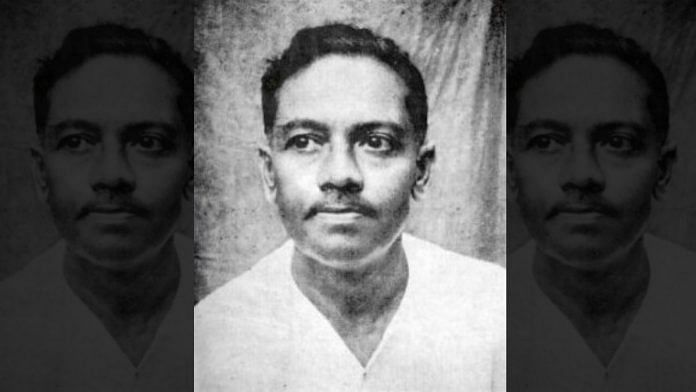Jibanananda Das is considered one of the precursors of modernist poetry in Bengali literature. Considered an avant-garde during the time he wrote, he was one of the most talented figures among Bengali poets that came after Rabindranath Tagore. While Das may be a canonised literary figure now, he never received his due during his lifetime, and like most poets, battled both poverty and the lack of recognition. His literary career, which also saw him selling insurance to survive, is a story that stirs much interest, especially when seen in the context of his early death and brilliant legacy.
Tagore’s death left a void in Bengali and Indian literature that could not be filled easily. In fact, such was the influence and stature of the Nobel prize winner, that it was considered a matter of pride to emulate him in any and every manner possible — and literature was one way to do that.
It was at this juncture that Jibanananda Das arrived in the Bengali literary scene. Sudeshna Chakravarti writes, “He was the most talented of the post-Tagore group of Bengali poets who had fine-tuned their sensibility to the frequencies of modern Western poetry and at the same time were eager to mix it with native cultural elements.”
Also read: I asked Tagore to write an essay for me so I could top my class. We got 4 out of 10
‘Windy Night’ — taking after Tagore’s cosmopolitanism
In 19th century Bengal, Tagore dominated literary circles to the extent that it was almost impossible for an educated Bengali to think beyond him. His works, which covered the ideas of both the East and the West, had set a benchmark that was insurmountable. The fact that Jibanananda Das managed to carve his own space within the corpus points to something that tips the balance in his favour — he did not try ‘too hard’. He created his own kind of poetry, one that makes him the recognised poet that he is today.
Das’s poetry is littered with references to history, including mentions of Babylon, Phoenicia, and Assyrria in poems like ‘Windy Night’. Blending the local and the global together, he created poetry that few could match up to.
Jibanananda Das kept to his exclusive domain of poetry and was distinguished from the contemporaries of his times, including the noted poet Kazi Nazrul Islam.
Bengal as his eternal ‘home’
Jibanananda Das was born in Barisal in undivided Bengal on 17 February 1899. His grandfather and father were both part-time preachers in the Brahmo Samaj, which also influenced his writing. His mother, Kusumkumari Das, wrote poems, some of which were also published.
The time spent in Barisal heavily influenced Das’s poetry, and he often used images of rural Bengal in his poems. His keen interest in literature and poetry made him give up job opportunities in Punjab and Assam. Instead, he chose to battle poverty in Bengal because that’s where his poetry would find its ‘home’.
From the Bengal famine to World War II to being a professor of literature, Jibanananda Das’s poetry was influenced by a gamut of ideas. A close follower of Tagorean aesthetics, he added and developed it further with his originality. He too was fascinated by the world, its events and history as much as he was affected by the nuances of ground reality. In essence, he was a poet of the romantic world, but his heart beat to the rhythm of Bengali tunes.
Also read: Why Bengal needs to learn from Tagore’s words on resolving conflicts through ‘Hindu viewpoint’
Nationalism, or the lack of it
Throughout his life, Jibanananda Das faced criticism from multiple quarters for the poems he wrote. If some questioned his description of the female bosom in ‘Banalata Sen’, others found a lack of nationalism and Marxism in his works objectionable. That made him stand out in an unflattering fashion — Bengal had been an intellectual hub with long-standing Leftist currents. Das’s ‘originality’ cost him too.
A romanticist, Jibanandana Das’s nationalism was not characterised by violence or hyperreal imagery. His nationalism, if any, stemmed from the way he looked at the landscape of Bengal, and his resistance was through the use of metaphors that were quintessential of the place he grew up and refused to leave, even for a better lifestyle.
‘I Shall Return to This Bengal’ is the prime example of his love for his motherland wherein he sought to be reborn as a part of its landscape:
“Once again I’ll come, smitten by Bengal’s rivers, fields, to this
Green and kindly land of Bengal, moistened by the waves of the Jalangi.”
Jibanananda Das was ironically killed in an accident when a speeding tram knocked the poet unconscious in South Kolkata’s Rashbehari Avenue on 17 October 1954. He succumbed to his injuries a few days later, leaving many to speculate it was suicide. One does hope he returned in his next life to his beloved Bengal like he always wanted to.
(Edited by Humra Laeeq)



